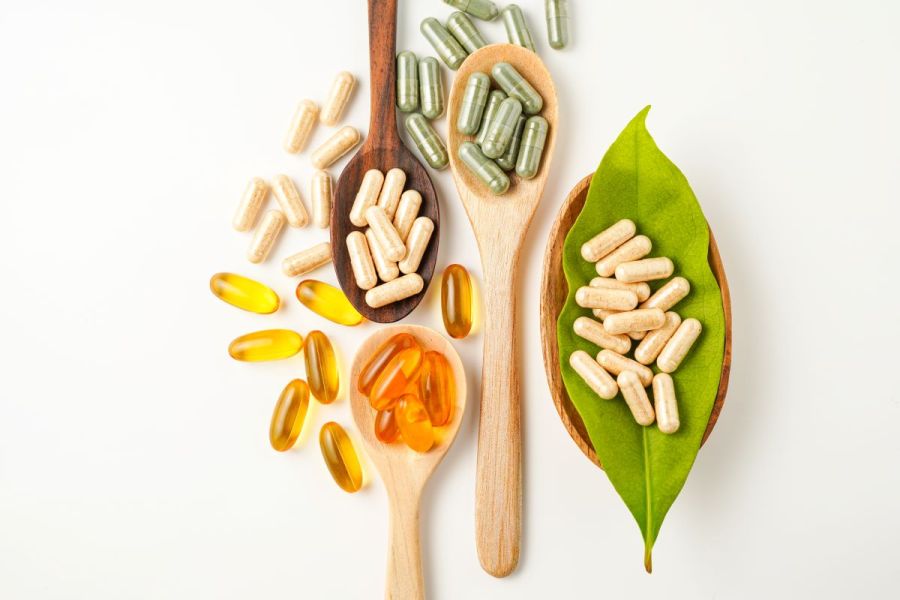Advertorial promotion
Wondering which supplements you should take? In this A-Z supplement guide, experts from Revive Active explain how to find the best nutritional support for your needs.
Whether you’re recovering from heavy training or simply feeling under par, we all have times when we’re not at our best. Eating well, getting plenty of rest and following an appropriate exercise regime will help you get back on your feet, but sometimes you need a bit of extra support. That’s where supplements come in. They’re not a replacement for good nutrition but, rather, are designed to fill in the gaps that a diet low in nutrients, intensive training or other lifestyle factors can create. Read on to discover which supplements you should take and how they will support you.
A is for ashwagandha
If you’re feeling on edge, this ancient ayurvedic herb could be one to try. Ashwagandha acts as an adaptogen that supports relaxation and helps to maintain mental balance, which makes it ideal if you’re tired but wired or struggling to sleep. Research into the benefits of ashwagandha is still emerging, but studies have found participants report reduced sleeplessness and fatigue, plus it’s been shown to lower levels of the stress hormone, cortisol, compared with placebo. For extra support, take with vitamin B5, also known as pantothenic acid.
B is for beta glucans
When allergies strike or you’re feeling run-down, you may want to take a beta glucans supplement. Derived from the walls of yeast cells, this insoluble fibre is one of the lesser-known ways of supporting your body’s natural immunity cells. Take alongside other immune boosters, such as vitamins C and D, and zinc, to maximise the benefits.

Revive Active’s Beauty Complex was the winner of Best Collagen Supplement in the Marie Claire Skin Awards
C is for chromium
Can’t control your cravings? You could be in need of chromium. Named after the Greek word for colour, ‘chroma’, due to the many colourful compounds it forms, this essential trace mineral is crucial for insulin function and the metabolism of carbohydrates, fats and protein. Food sources include broccoli, liver and brewers’ yeast, but it’s often poorly absorbed. Supplementing with 200-1,000 mcg of chromium picolinate a day, the most effective form of chromium, has been shown to improve blood glucose control.
D is for vitamin D
Feeling low or less resilient to what life’s throwing at you? The sunshine vitamin does far more than aid calcium absorption to strengthen teeth and bones – low levels have been associated with low mood. Vitamin D also helps to modulate immune reactions. The UK Government advises everyone takes a supplement during autumn and winter, but if you’re vegetarian or vegan, or your body is subject to hormonal changes, you may need it more often. Combine with vitamin K2 to ensure calcium is transported to your bones and teeth.
E is for vitamin E
Well-known for its role in maintaining skin health and appearance, this antioxidant vitamin protects cells from free-radical damage, including the cells of your heart and circulatory system. It’s especially useful if you have contraindicated lifestyle factors, or you train outside a lot. New research suggests that it may also be neuroprotective, by reducing oxidative stress on the brain.
F is for folic acid
You may think folic acid is only necessary when you’re pregnant or trying to conceive, but it’s used by every cell in your body and is vital for red blood cell formation and DNA repair. It also reduces high homocysteine levels, which has been linked to greater risk of other health conditions. Increase your intake of green leafy veg such as kale and Swiss chard, especially when menstruating, or combine a folic acid supplement with iron, copper and vitamin B12 to support blood cell formation, and vitamin E to enhance the lifespan of red blood cells.

Revive Active’s tasty Teen Revive and Junior Revive supplements are perfect for any fussy eaters in the family
G is for glutamine
If you’re training hard or you’ve put your body through the wringer, this supplement could help. Crucial for the repair and maintenance of muscle tissue, glutamine is the most abundant amino acid in your body and can be a valuable choice if you’re looking to build or maintain muscle mass. L-glutamine is a preferred food source for many immune cells so, used in conjunction with vitamin A or zinc, it can help boost immune function, enhance tissue repair and support your recovery.
H is for vitamin H
Also known as biotin (vitamin B7), this co-enzyme is crucial for the metabolism of macros – proteins, fats and carbohydrates – and helps maintain a healthy nervous system. Signs you may be low in biotin include brittle nails and thinning hair or hair loss. If you’re pregnant or breast feeding, you may have trouble meeting your daily requirement. Biotin is water-soluble, so your body does not store it. Take alongside the other B vitamins, to support energy production.
Stay tuned for parts 2 and 3, coming soon!

Supercharge your supplements
Want even more benefits? Optimise your health regime by stacking your supplements, capitalising on the synergistic power between different nutrients. ‘Nutrient stacking’ is at the heart of Revive Active’s products, combining synergistic active ingredients to create all-in-one comprehensive formulas that deliver multiple functional benefits. Its products contain between eight and 26 active ingredients, providing the scientific synergies with all of the guesswork removed. Revive Active’s Zest Active, for example (pictured, above), contains both taurine and pantothenic acid to give you even more of an energy boost!







